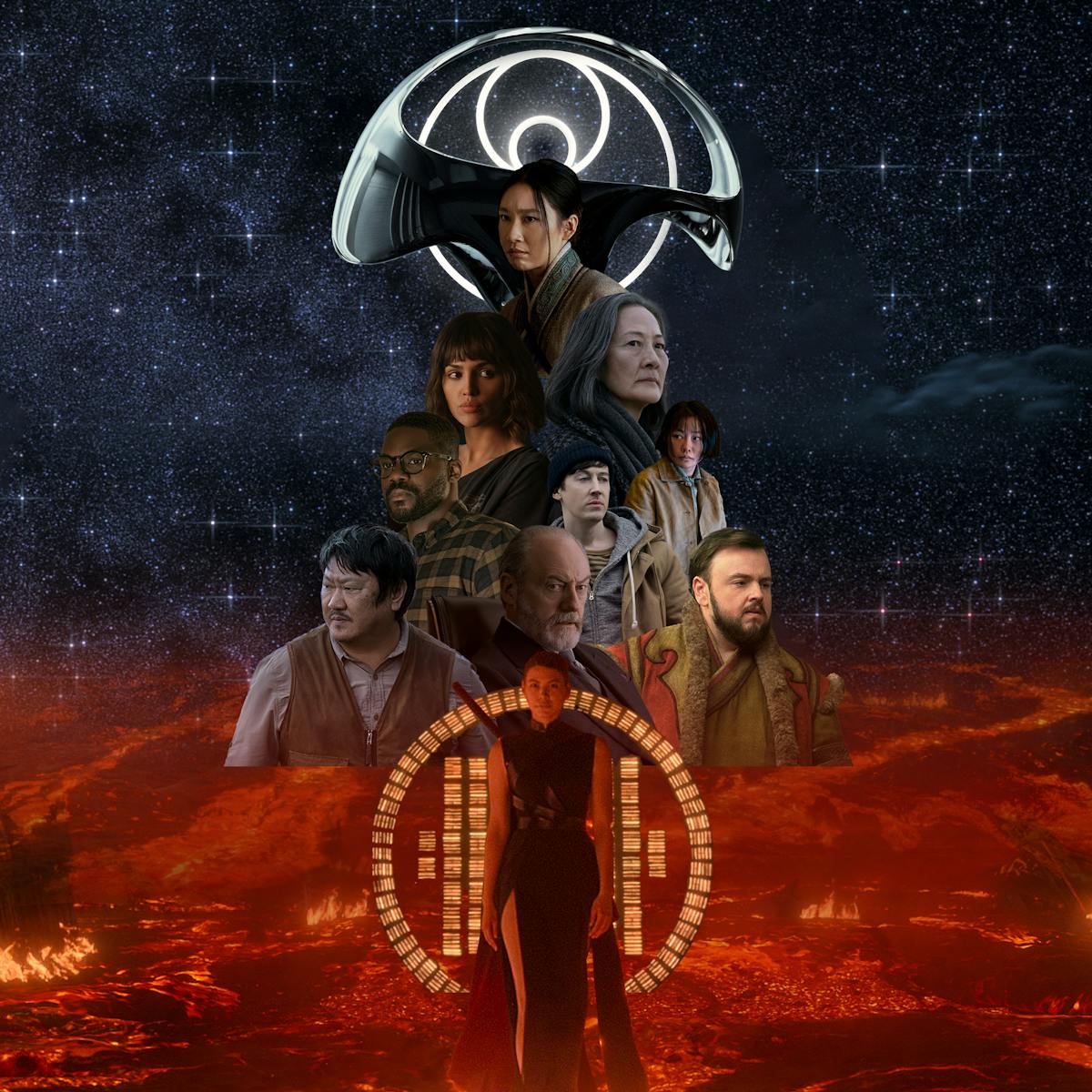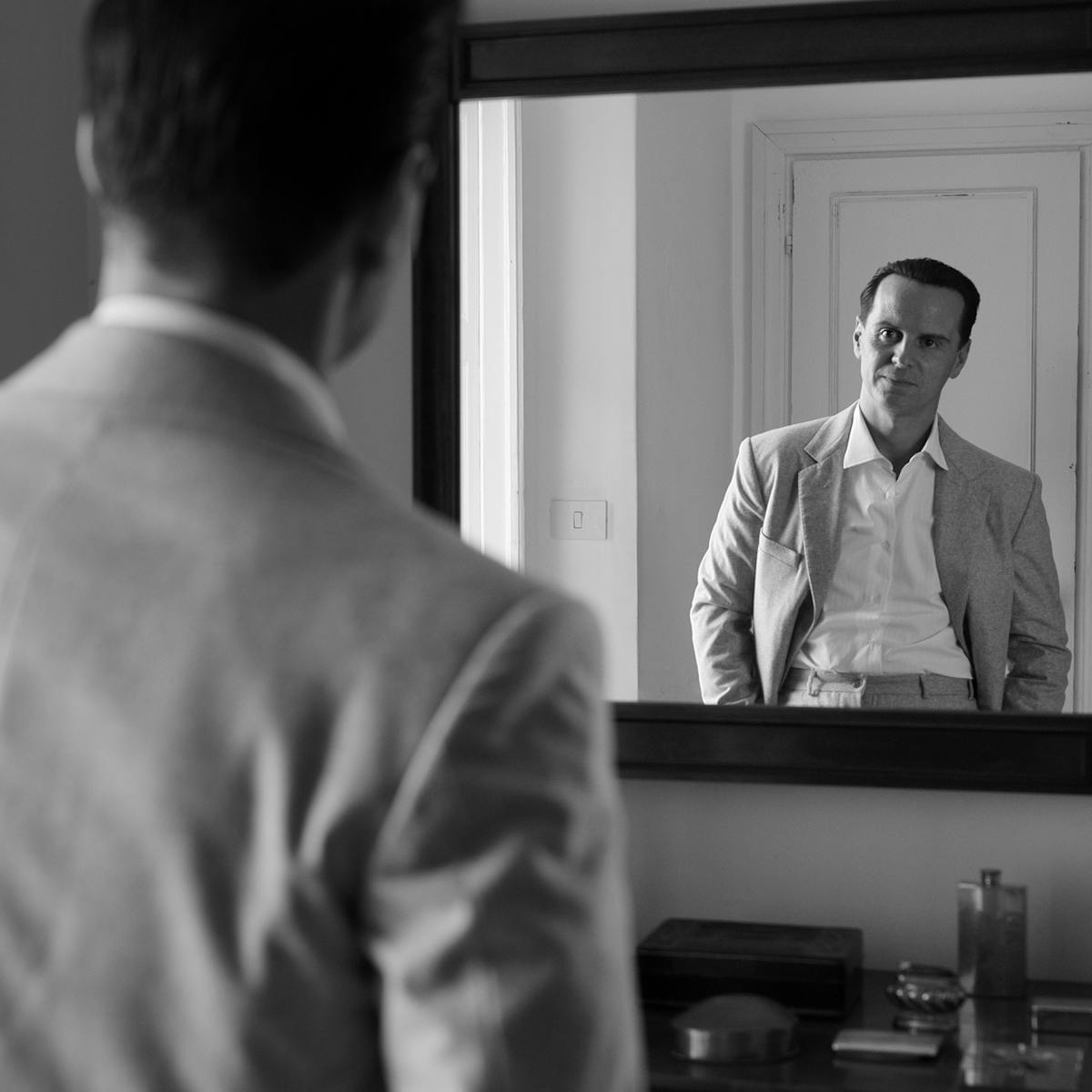Few news interviews are marked in history, forever remembered by those who tuned in live, then discussed and dissected them in the days and weeks that followed. David Frost’s interviews with Richard Nixon in 1977. Martin Bashir’s interview with Princess Diana on Panorama in 1995. And most recently, Emily Maitlis’s interview with Prince Andrew on Newsnight in 2019.
Scoop, written by Peter Moffat and and Geoff Bussetil directed by Philip Martin, unpacks the historic Newsnight interview, centering not on the content of Prince Andrew (The Diplomat’s Rufus Sewell) and Maitlis’s (Emmy winner Gillian Anderson) conversation, but what it took for the interview to come together and the brilliant women who made it happen. “The film, at the end of the day, celebrates the importance of independent journalism,” says Anderson, “the importance of journalists having the opportunity to hold authority to account, to speak truth to power.”
The brilliant piece of broadcast journalism, in which Maitlis questions Prince Andrew about his relationship with sex offenders and traffickers Jeffrey Epstein and Ghislaine Maxwell, would not have been realized without the clever work of Newsnight producer Sam McAlister, whose tenacious spirit comes to life through Olivier-winning actor Billie Piper (Doctor Who, I Hate Suzie). “Half of the challenge with taking on the role and making this film was this idea of, How do you make a movie about something everybody has seen?” says Piper. “How do you gear an entire movie towards this one moment that everyone knows so much about, and how do you make people care again?”

Sam McAlister (Billie Piper)
For the cast, Bussetil and Moffat’s script gave the answer to Piper’s questions. “It was a page-turner even though we knew where the story ends up,” says Anderson. “Yet in the film, we don’t know from one minute to the next if they’re going to be able to get the interview. Even though I was there — I acted in it, I read the script, I know what happened — while watching the film, I still found it thrilling.”
Keeley Hawes (Bodyguard), who joins the cast as Prince Andrew’s private secretary and top aide Amanda Thirsk, was equally enthralled by the storytelling. “I read the scripts, and I was just blown away,” she recalls. “It’s such a brilliant way to tell the story of that interview through the lens of the women [involved]. I really had no idea [about] the work and the tenacity of these brilliant women who made it happen.”
The actors had before them the task of telling the stories of public figures, an immense responsibility for any actor. Piper was able to spend time with McAlister prior to filming, coming to understand the person behind the story. “Learning about Sam, we don’t have a dissimilar background, so it’s always good to have something you can relate to in the characters that you play,” says Piper. “She is a real force of nature and formidable and high energy. She is so persistent and curious. A lot of that was reflected in things like her walk, her mannerisms, the costume. There’s something so structured and uniformed about what she wears every single day that gave me a lot of thrust.”

Emily Maitlis (Gillian Anderson)
Anderson, who only a few years prior portrayed former Prime Minister Margaret Thatcher on The Crown, found the role of Maitlis to bring a new set of challenges. “It was the first time that I’ve played a real-life character who is still alive, and I have to say, it’s more daunting playing an Emily Maitlis than a Margaret Thatcher even. People know her so well, they listen to her daily, they watch her and have for years. This interview is etched in people’s minds as being a real important moment not just for journalism but in terms of these two institutions of the BBC and Buckingham Palace facing off, in a sense.”
The interview, which gained global attention for Prince Andrew’s odd excuses and attempts at alibis and for Maitlis’s precise and persistent questioning, went on to earn the journalist and the TV episode multiple awards, highlighting the importance of the work of the Newsnight team. “We are fed so much news on a loop these days — here today and gone by this evening,” comments Hawes. “This sort of investigative journalism, the work that goes into that, I had no idea. I think that’s what’s going to be really appealing to people, that it’s a look behind the curtain.”
In the aftermath of the interview’s broadcast, media coverage honed in on Prince Andrew’s responses and his permanent resignation from his public role as part of the British royal family. Scoop brings the story back to the beginning and recenters the attention.“I think it’s really important to have stories like Scoop. Especially stories of this nature, about the women who got that interview on our screens and were the catalyst to so many things that followed,” says Piper. “They need to be recognized.”

Amanda Thirsk (Keeley Hawes)



